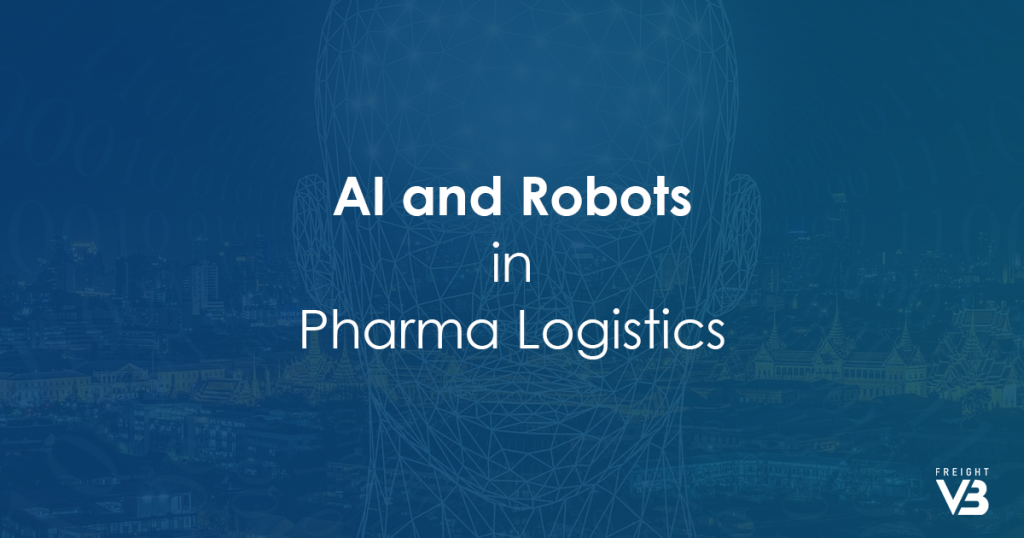
The Role of AI & Robotics in Evolving Pharma Logistics
Key Takeaway Points:
- Efficient supply chain management is crucial for the success of the pharmaceutical industry.
- The rise of AI and robotics in pharma logistics is transforming warehouse operations and improving inventory tracking.
- Future trends in AI robotics include predictive analytics, collaborative robots, and improved last-mile delivery.
- Pharmaceutical companies should embrace AI robotics to enhance their logistics operations and gain a competitive edge.
Today we look at how efficient supply chain management plays a pivotal role in the success of the pharmaceutical industry. And how pharmaceutical companies are exploring new ways to make their logistics operations more efficient.
This article delves into the world of AI robotics and its positive impact on pharma logistics. AI robotics can help warehouse operations and supply chain management by using autonomous robots and advanced data analytics.
Current Challenges in Pharma Logistics
The pharmaceutical industry faces several challenges in logistics due to its complex supply chain and distribution network.
- One major concern is that we need to maintain temperature control and manage the cold chain to keep temperature-sensitive medications safe.
- Additionally, inventory management and stock accuracy are significant challenges because manual stock counting and placement errors can cause delays and inefficiencies.
- Human errors in operative handling have shown to cause 30-40% of all deviations.
- Regulatory compliance and traceability requirements further add to the complexity. We need robust systems to ensure adherence to regulations and trace the journey of pharmaceutical products throughout the supply chain.
Overcoming these challenges is crucial to ensure safe and efficient pharmaceutical logistics operations.
The Rise of AI Robotics in Pharma Logistics
Over the last decade, innovative companies have started using robotics. And now they are starting to integrate AI to take robotics to a whole new level.
AI robotics has the potential to change the way pharmaceutical logistics work. AI robots could collect data that helps track inventory and make sure products are safe. AI robots also help follow rules and make sure products get where they need to go.
Most of these tasks are repetitive and boring, which is where errors creep in. AI solves this efficiently and can do it up to 100 times quicker.
Benefits and Applications of AI Robotics in Pharma Logistics
The adoption of AI robotics in pharma logistics brings many benefits. Warehouses become more efficient and productive because they have better inventory management and stock tracking.
AI robots help manage cold chains and control temperatures with ultra-small product sensors for sensitive pharmaceuticals. This can streamline regulatory compliance and the documentation processes, ensuring adherence to standards. Additionally, AI robotics help optimise resource allocation, leading to significant cost savings.
Case Studies and Success Stories
Dexory seems to be pioneering AI robotics for warehouse operations, they say their aim is for global expansion with their autonomous robots.
Pharmaceutical companies and logistics giants like Maersk with spider robots and Menzies Aviation at Heathrow have already implemented robotics. And found the following beneficial:
- These robots have improved the performance of logistics processes in many ways.
- For example, robots can pack drugs, load products, and stack boxes.
- AI can watch transportation conditions and identify potential defects.
- This has helped to improve the safety, efficiency, and quality of logistics operations.
The success stories highlight the transformative impact of AI robotics in streamlining operations within the pharmaceutical logistics industry.
Challenges and Considerations
The adoption of AI robotics in pharma logistics comes with its own set of challenges and considerations. Organisations need to consider the initial investment and implementation costs involved. Integration with existing systems and infrastructure may need careful planning and coordination.
Addressing workforce implications and retraining to ensure a smooth transition. Additionally, addressing cybersecurity and data privacy concerns to safeguard sensitive pharmaceutical and logistical information.
Future Outlook and Trends
The future of AI robotics in pharma logistics looks promising, with ongoing advancements in technology. With the potential growth of the collaborative growth of the AI robotics market to reach $2 billion by 2030. Other notable points are:
- Predictive analytics and machine learning can predict demand, which will improve inventory management.
- Collaborative robots and better human-robot interaction can make logistics operations more efficient and productive.
- AI robotics can improve last-mile delivery in the pharmaceutical industry by improving speed, accuracy, and product integrity.
Final Thoughts on Pharma Logistics
AI robotics holds tremendous potential for revolutionising pharma logistics. AI robotics can make pharmaceutical logistics more efficient, accurate, compliant, and resourceful.
Pharmaceutical companies could use AI robotics to improve their logistics operations.
By leveraging AI robotics, companies can unlock the advantages of productivity, cost savings, and competitive advantage in the dynamic pharmaceutical industry.
Links:
- Dexory Crowdfunding Raises £17.3m
- Dexory Developed End-to-End Visibility Over Warehouses
- Dexory AI Robotics
- Ai is Reshaping Supply Chain Cost Management
- Top Pharmaceutical Robotics Companies
- Maersk’s Spider Robots
- Menzies Aviation Welcomes Robots
- Robot Market to Grow to 2 Billion in the Pharma Industry
- Pharma Eliminating Human Errors in Supply Chain
- Pharma Eliminating Human Errors in Pharmaceutical Industry


